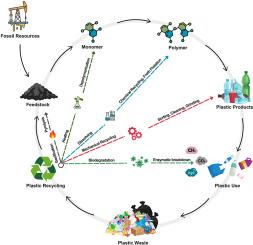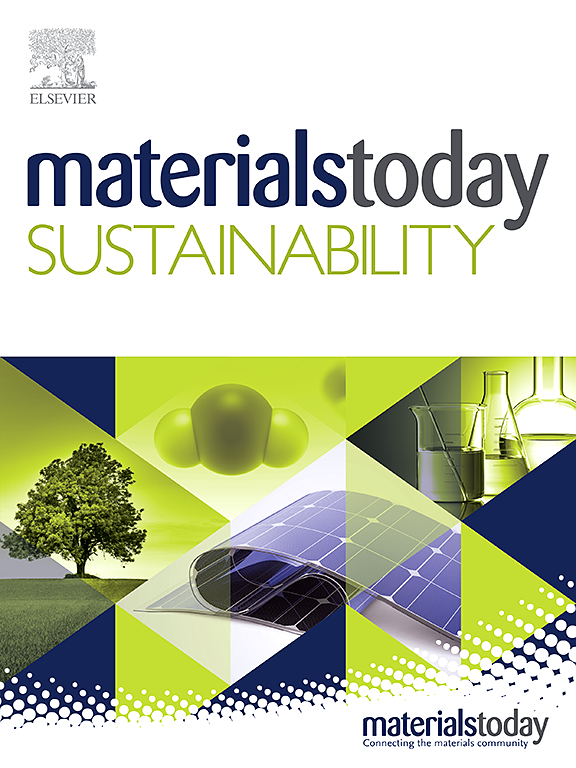Towards circularity of plastics: A materials informatics perspective
IF 7.1
3区 材料科学
Q1 GREEN & SUSTAINABLE SCIENCE & TECHNOLOGY
引用次数: 0
Abstract
Plastic pollution and the associated adversities have been intensively researched recently, providing ample solutions with diverse possibilities and yielding a considerable corpus of literature in plastic waste management (PWM). Regardless of the vast range of techniques formulated, such as mechanical recycling and chemical depolymerization, many of these approaches have limitations including significant costs, ecological threats, and inefficiencies in handling diverse plastic types. Manual analysis of these challenges and the reported solutions from the vast collection of interdisciplinary research papers is extremely laborious. Herein, using tools of data science to create a network of ∼350,000 papers and subsequent clustering to identify various protocols for PWM and determining the main paths of their knowledge evolution, we review their progress. The broad objective of this analysis is to provide a comprehensive understanding of different PWM techniques, with a focus on the importance of integrated, technologically advanced, and environmentally conscious approaches to solve plastic pollution. We identify four major categories of PWM (physical, chemical, physio-chemical, and biological) and analyze their mechanistic details. Our study highlights the critical need for the establishment of more sustainable PWM methodologies, supporting the integration of artificial intelligence to refine process optimization and cultivate interdisciplinary collaboration focused on advancing a circular economy and reducing plastic waste. Together with a deep discussion on the gaps between the set goals and the current achievements identified, these analyses could be a useful tool to confront the PW crisis.

实现塑料的循环利用:材料信息学视角
近来,人们对塑料污染及其相关问题进行了深入研究,提供了大量具有各种可能性的解决方案,并产生了大量有关塑料废物管理(PWM)的文献。尽管制定了大量技术(如机械回收和化学解聚),但其中许多方法都存在局限性,包括成本高昂、生态威胁以及处理不同类型塑料的效率低下。对这些挑战和大量跨学科研究论文中报告的解决方案进行人工分析非常费力。在此,我们利用数据科学工具创建了一个由 35 万篇论文组成的网络,并随后进行了聚类,以识别 PWM 的各种协议,并确定其知识演变的主要路径,从而回顾其进展情况。这项分析的总体目标是全面了解不同的公共工程管理技术,重点关注综合、技术先进和具有环保意识的方法对解决塑料污染问题的重要性。我们确定了 PWM 的四大类别(物理、化学、物理化学和生物),并对其机理细节进行了分析。我们的研究强调,迫切需要建立更具可持续性的公共工程管理方法,支持人工智能的整合,以完善流程优化,并培养跨学科合作,重点推进循环经济,减少塑料垃圾。在深入讨论既定目标与当前成果之间的差距的同时,这些分析可以成为应对公共工程危机的有用工具。
本文章由计算机程序翻译,如有差异,请以英文原文为准。
求助全文
约1分钟内获得全文
求助全文
来源期刊

Materials Today Sustainability
Multiple-
CiteScore
5.80
自引率
6.40%
发文量
174
审稿时长
32 days
期刊介绍:
Materials Today Sustainability is a multi-disciplinary journal covering all aspects of sustainability through materials science.
With a rapidly increasing population with growing demands, materials science has emerged as a critical discipline toward protecting of the environment and ensuring the long term survival of future generations.
 求助内容:
求助内容: 应助结果提醒方式:
应助结果提醒方式:


